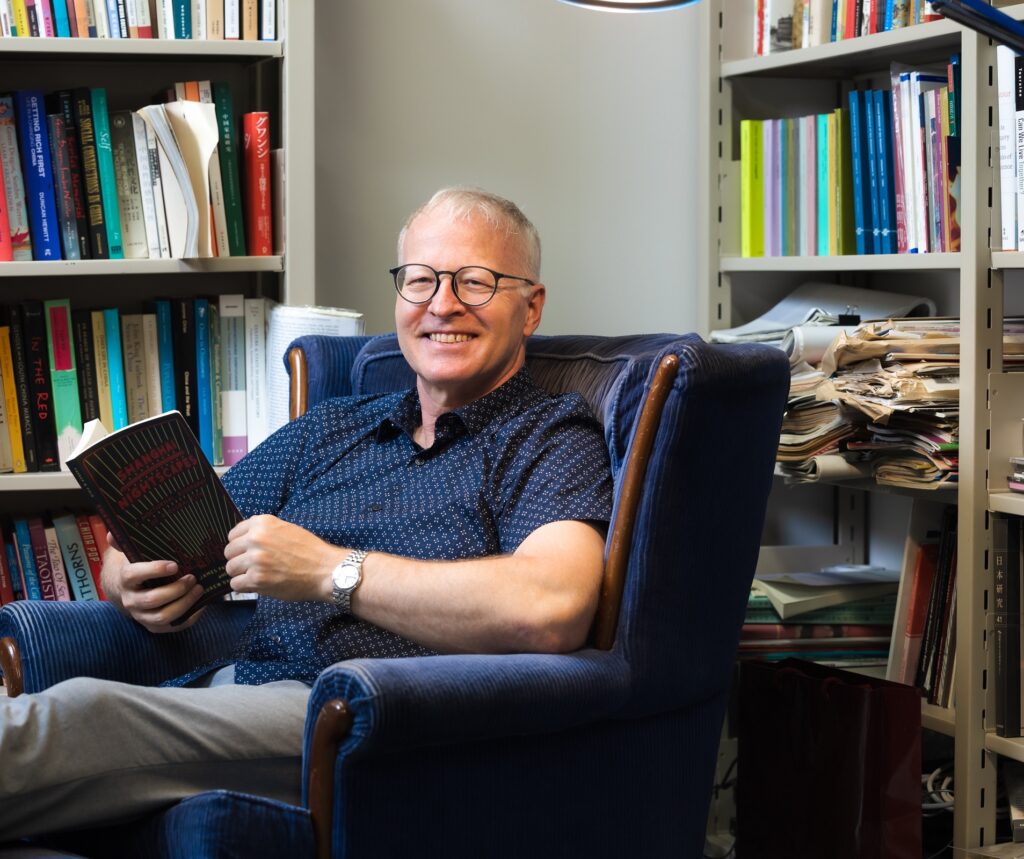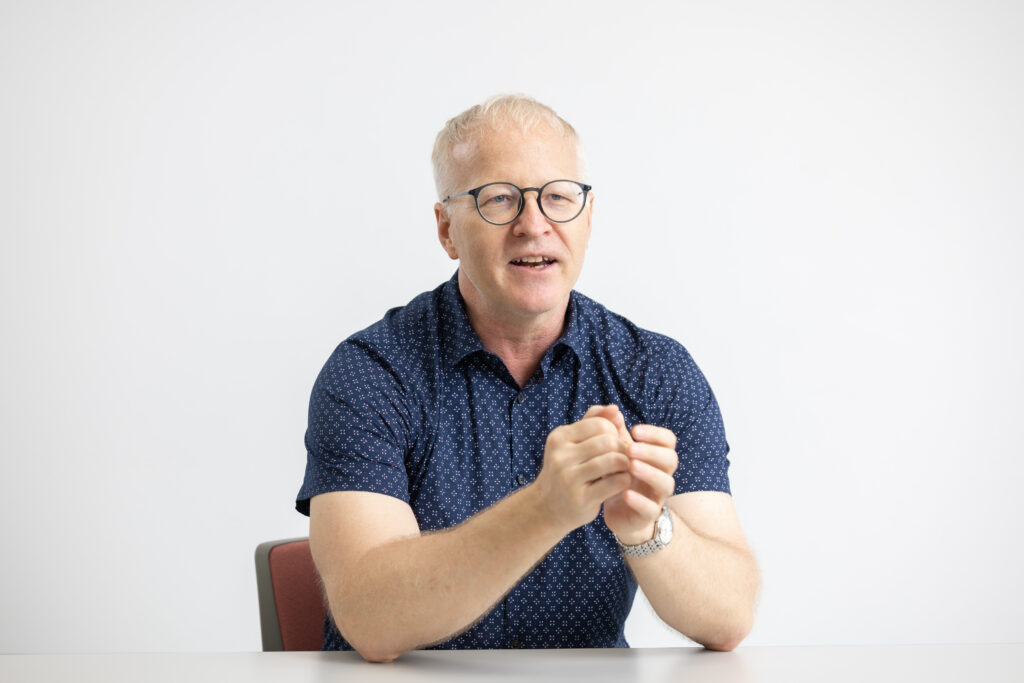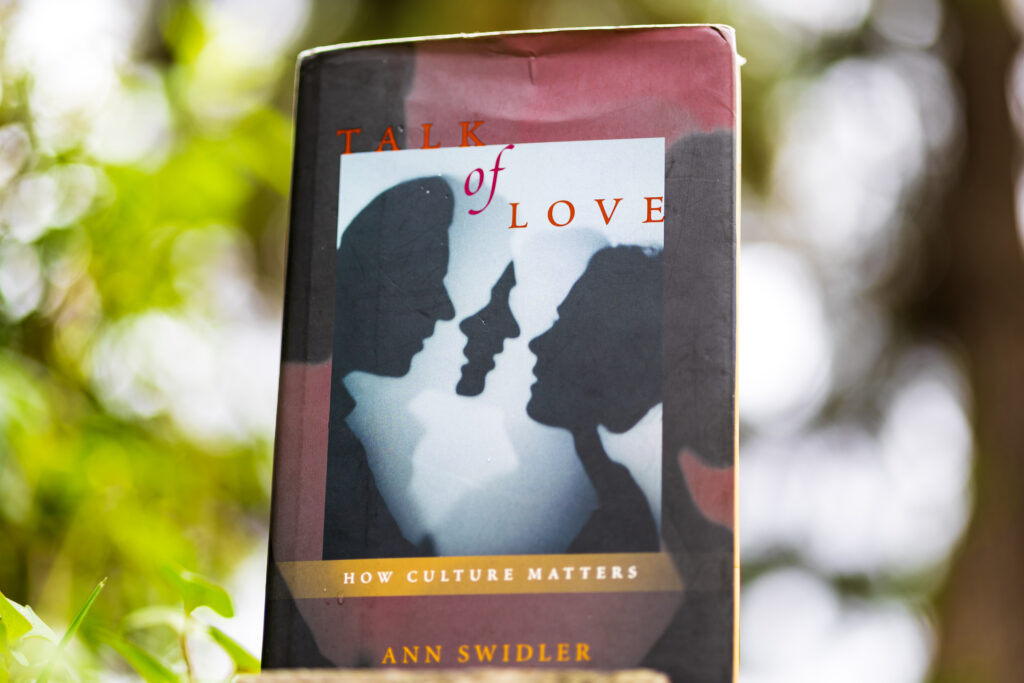
Professor James Farrer of the Faculty of Liberal Arts focuses on Tokyo neighborhood foodways in his sociological research. Investigating the relationships among microbusinesses, consumers, and the community through ethnographic fieldwork, he tries to uncover threats to the sustainability of the community and make an impact on its development through public ethnography.
My current research focuses on neighborhood foodways in Tokyo, which is about how a community supports an ecology of small businesses as well as how small businesses create a sense of community. The area I have been working on is Nishi-Ogikubo in Tokyo’s Suginami Ward, close to where I live.
The way I conduct my research is mainly based on ethnographic fieldwork, which basically means interviewing people and learning from them. This is a type of qualitative research which requires an attitude of questioning and analyzing inputs in contrast to quantitative research that allows you to prove a hypothesis with numbers. As a sociologist, we need to always be skeptical of ideas we have or what we hear, and constantly approach people who can tell us their stories to keep our ideas up to date with a changing reality.
The reality can be learned from the people in the community

What I learned, for instance, through my ongoing research on the neighborhood of Nishi-Ogikubo is that the impact of Covid-19 on small businesses including restaurants operated by just one person was not as devastating as what we expected. Financial support from the government and income generated by take-out orders helped them survive while some of the larger businesses in the central part of the city were threatened more because they relied on business people commuting there for work.
Those that were also hit hard were small businesses that depended heavily on specific events or sectors such as weddings and tourism and that were already suffering from other problems such as the aging population.
Some of the places I have visited to conduct interviews for my research — a half-century old coffee shop run by an aged owner or a French restaurant that served as a venue for big events in the neighborhood — went out of business. I think both would have lasted longer if it had not been for the pandemic.
As a result of the aging society and the closure of aging businesses, we see rebuilding and redevelopment, which impacts the nature of the community and causes a shift from independent ownership to corporate ownership of businesses. This destroys the characteristics of a community and changes the connections between people and the community.
Places where shokunin (artisans) used to work for years to develop their skills may also be lost. At the same time, new types of shokunin can emerge. In fact, there are already new shokunin who are learning their craft on YouTube. There are also more and more women joining the culture of artisanship. To keep our understanding of reality up to date, we talk to people to learn about these changes.
Building a direct connection with the community to make an impact
I run a public ethnography website named Nishiogiology.org that publishes my research on Nishi-Ogikubo both in English and Japanese to share it with all the people engaged in the research, including those I interviewed. That way, we have a better chance of making an impact on the community. We can document the lives of the owners of tiny businesses that don’t get media attention and provide not just a generic picture, but show the complex realities of independent businesses. Nishiogiology.org was recently designated an “exemplar of utilizing knowledge of Japanese food culture” by the Japanese Agency for Cultural Affairs.
It is also possible to enlighten policymakers about what the community needs and values now, which may change over time. Family businesses were more sustainable fifty years ago than now when many of them could afford to own and live where they work. More and more microbusiness owners may become aware of work-life balance, something that older generations may have never thought of. In addition to raising these issues, we may also be able to pose a question about what impact redevelopment may have on the community.
That is one of the reasons why I decided to focus on my own local community after having spent many years studying various topics including sexuality and youth cultures in Shanghai, China, where I had the sense of pessimism for making an impact on the society as a foreign researcher.
The next phase of my academic endeavor would be to work on a book on neighborhood foodways involving other researchers working on the same topic in other parts of the world, find out what kind of communities exist, find their similarities and differences, and connect to more communities and people.
The book I recommend
“Talk of Love”
by Ann Swidler, The University of Chicago Press

The author talks about how one person can have multiple ideas about one notion such as love and use them inconsistently, but effectively. This realization is useful in perceiving what culture is, why it is complex and flexible, and why there is no “the culture,” just as there is no “the love” that we all believe in.
-
James Farrer
- Professor
Department of Liberal Arts
Faculty of Liberal Arts
- Professor
-
James Farrer received his B.A. in Cognitive Science at University of North Carolina, Chapel Hill. He received his M.A. and Ph.D. from the University of Chicago in 1998. His research has encompassed diverse topics, all centered in the cultural contact zones of global cities including Tokyo, Shanghai, and New York. He joined Sophia University in 1998, where he is also the Director of the Sophia University Graduate Program in Global Studies.
- Department of Liberal Arts
Interviewed: July 2022